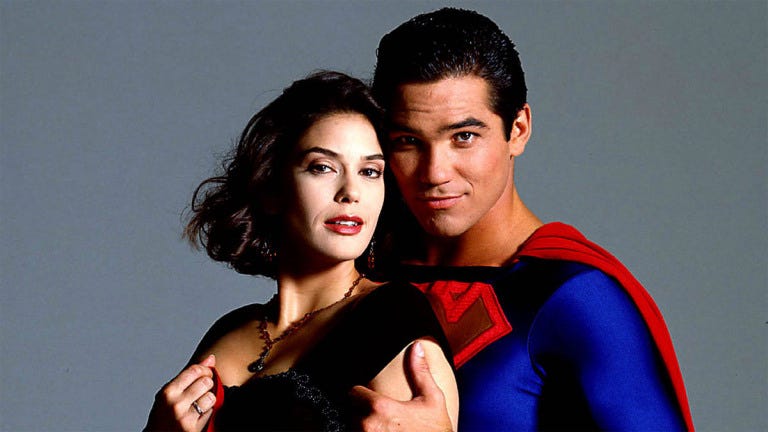How can you make an invincible character work dramatically? A walking dues-ex-machina like Superman is much less dynamic then, say, the X-Men who have various strengths and weaknesses.
Ahh, but kryptonite, there’s the rub. So if correctly employed in a script, Superman would either be completely on or completely off. Still kind of clunky, no?

That concern was on my mind when I decided to revisit Lois and Clark. The 1990s Superman reboot that focused on the budding romance between Superman and reporter Lois Lane was notable for one of my first celebrity crushes in Teri Hatcher and, I can’t remember much else, unfortunately.
What I found was a show in the very conscious mold of a screwball comedy. The genre solidified on stage and on screen during the Great Depression with a society reeling from the loss in wealth and class status. Status is key to the genre as both parts of the romantic coupling have a mix of higher and lower social statuses in relation to the other that must be bridged to make a more perfect union. For instance, in Bringing Up Baby, Katherine Hepburn’s character has the assets of having more inner confidence and being more fun than Cary Grant’s character while having the disadvantage of being a woman and having less of an actual job (she appears idle rich). In Ball of Fire, Barbara Stanwyck’s character has the assets of confidence, sexual experience, street smarts and quite possibly greater material wealth (she’s the sweetheart of a mobster), while her counterpart (Gary Cooper) has the assets of stability (he has a house which she needs), and a different sort of cultural status as a member of an academic aristocracy of sorts.
In Lois and Clark, Lois Lane is a whip-smart and well-connected reporter thriving in a man’s world. She’s literally the boss of Clark which is the clearest difference of status attainable. So what does Clark bring in return? Secret super powers! It also helps that their career as muckraking reporters (which almost involves more muckraking than would be permissible by modern standards) get them into a lot of trouble so that Clark can come in handy. Thus, Clark’s struggles as a man trying to create a life for himself often comes down to the decision over whether to use his super powers and how to do it subtly.
Like the most famous screwball comedy about reporters, His Girl Friday (or the play The Front Page from which it drew its inspiration), Lois and Clark also harkens to an earlier era of the newspaper industry.
Let’s talk about how Lois and Clark treats newspapers:
In this version of the Daily Herald newsroom, the boss, Perry White, has a hard-nosed management style might come across as cruel by modern day standards. His biggest concern is getting the scoop and he fosters a hyper-competitive environment dedicated to that aim. Reporters seem to be demotes or promotes reporters based on their ability to get him juicy information.
In a modern day newsroom, an editor would assign beats to reporters and work on building an audience across multiple platforms. He or she would have a team dedicated to what’s known as long-form journalism to take on big-issue stories such as government corruption or (in this universe) the dastardly deeds of super-villains. They wouldn’t switch reporters to whatever story is hot at the moment, because the editor would want to build brands. This would involve building a following among the the community for their crime reporter or reporter for the mayor’s office.
The function is different here for obvious logistical reasons. Lois Lane needs to be in every story, so she has to be covering every beat and be at the center or else the episodes are 1% as interesting. Additionally, Lane needs to have powers that are comparable to super powers in her ability to scoop out a story.
But more importantly, in the days of Hecht and MacArthur, scooping was everything. Rival newspapers in most major cities were fighting enormous circulation wars and newspapers would print two editions a day so that readers could be apprised of the latest news immediately. Think of it as the twelve-hour news cycle. In other words, customers made their choice between competing products twice a day and a big pay day could await if one newspaper if they could feature details about a story that another paper didn’t have.
Despite what this show wants you to think, life or death doesn’t depend on a news story being released so waiting on a story long enough to ensure accuracy or quality is generally a better thing.

No comments:
Post a Comment